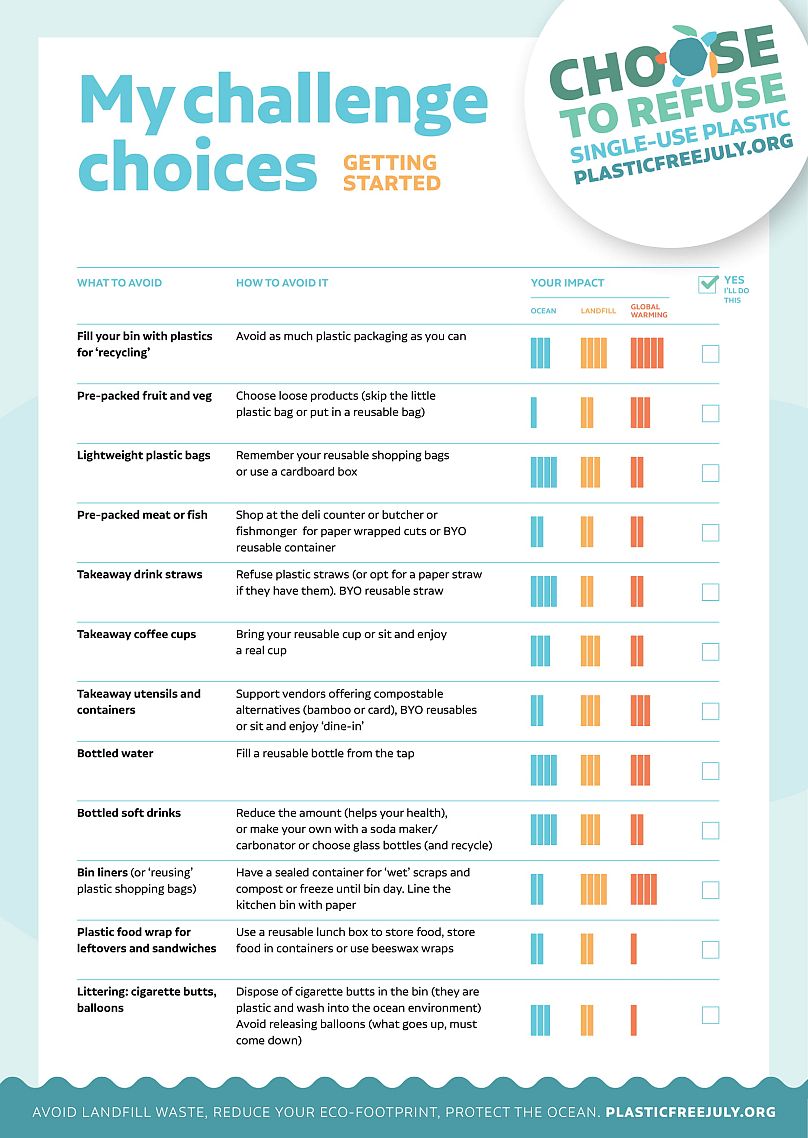Are you ready for a plastic-free July? Pledge to drastically cut down on your single-use plastic usage this month and be a part of a larger global community
The choice lies in refusal.
The choice to refuse plastic straws, single-use cups, shopping bags and so on, and to replace them with durable alternatives.
In saying no, millions of people from around the globe have pledged their participation in the plastic-free July challenge, to help counter plastic pollution.
How do you take the challenge?
Eight years ago in Western Australia, Rebecca Prince-Ruiz, founder of the Plastic Free Foundation, along with a small team in local government, initiated a campaign to reduce plastic. Today, the movement has caught on all over the world with 120 million people from across 177 countries participating last year.
On Plastic Free July's website, viewers are invited to pledge their commitment based on realistic goals. One day? Two days? A week? All of July? Tweets put out by the organisation highlighted the essence of the initiative. "We can't all do everything, but we can all do something... It's about trying to do better and not about being perfect."
At the heart of this challenge is the message that plastic is choking our natural environment, and simple choices could reverse the damage drastically.
How ubiquitous is plastic really?
Humans across the world produce 300 million tonnes of plastic annually, with at least half of disposable plastics designed to be used just once. These plastics do not decompose over hundreds of years. Plastic straws for instance, could easily float around in our oceans for as many as 500 years.
Plastic waste in our oceans and seas has been devastating marine life at alarming rates.
According to UN estimates, one million plastic drinking bottles are purchased every minute around the world. Every year globally, 5 trillion single-use plastic bags are used.
More than 8.3 billion tonnes of plastic have been produced in the last seven decades according to researchers. Of this, about 60% has ended up in either a landfill or the natural environment. The invasion of plastic in our lives has been so complete and widespread that scientists have suggested it could serve as a geological indicator for the Anthropocene era.
The Anthropocene era is a term used to denote a new geologic age which is dominated by human impact on earth's ecosystems and geology. It highlights the role of human activity in climate change and mass extinctions of plant and animal species.
Plastic in Europe
In March this year, the European Parliament passed a law banning single-use plastic items such as plates, cutlery, straws and cotton buds sticks. The law will come into force in all EU member states by 2021.
The agreement mandates that 90% of bottles be recycled in by 2029. Plastic bottles themselves will have to be made of at least 25% of recycled content by 2025, and 30% by 2030.
The legislation has also made it mandatory for companies to label their plastic products (plastic cups, sanitary napkins, wet wipes) as having an adverse environmental impact.












